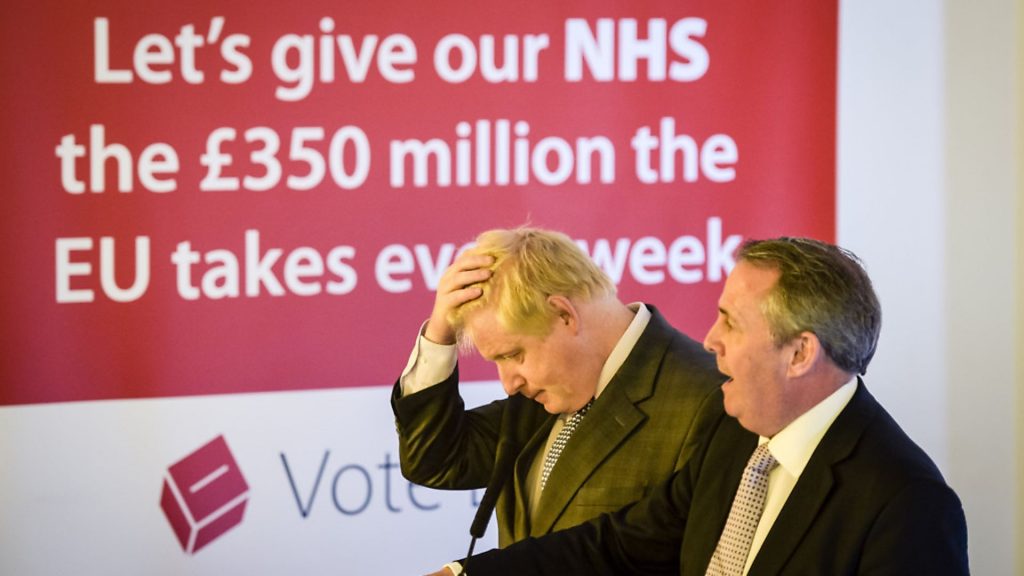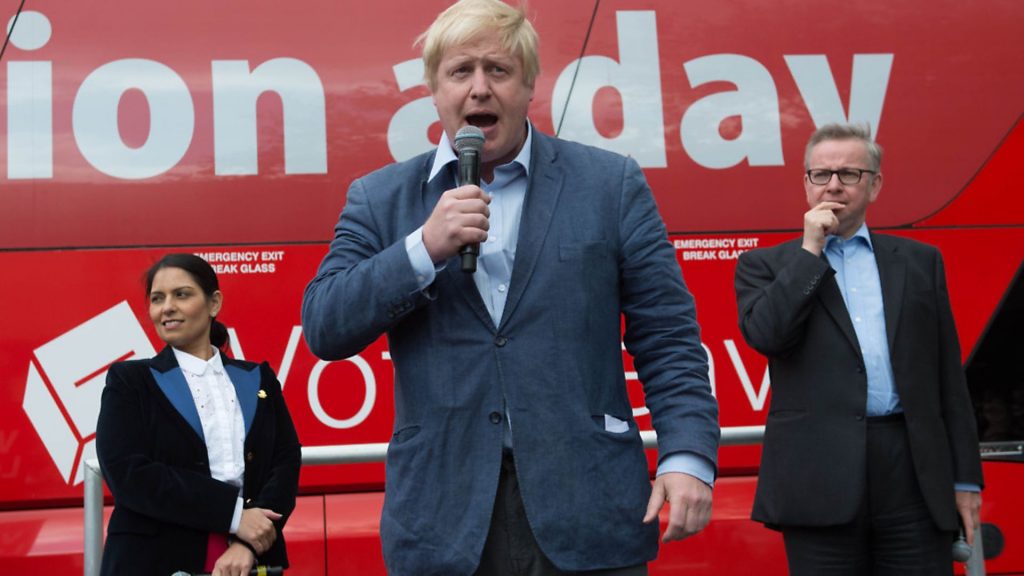
A campaigner has vowed to fight on in a court case against Boris Johnson – despite a judge ruling against his appeal.

A case brought by Marcus Ball as a private prosecutor claimed that Johnson had misled the public while in a position of high office during the EU referendum campaign – both as an MP and as Mayor of London.
Johnson was one of a number of Brexiteer MPs to parrot the message from the side of the Vote Leave bus which read: “We send the EU £350 million a week”.
But after a summons was issued against the now prime minister, Johnson’s legal team managed to get the case thrown out.
Now a subsequent appeal has been rejected by a judge too – but the campaigner is vowing to continue to fight on.

Speaking outside court after the ruling, he said: “This isn’t over, we are not giving up.
“We are pursuing it, absolutely.”
Ball now has the option to apply directly to the Supreme Court for permission.
Adrian Darbishire QC, representing Boris Johnson, said the district judge who issued a summons for the prime minister to attend court had “erred in law”.
“It was just a political claim open to and available for contradiction and debate, and it was, and is, for the good sense of the electorate to discount it if they choose so to do.
“It is not for the Crown Prosecution Service, judge and jury to determine the misconduct of this claim and it is not for the interested party either.”
While Lady Justice Rafferty did not explain her reasons for rejecting Ball’s appeal, the original decision to throw the case out was well-documented.
Rafferty and Justice Supperstone claimed the argument was “flawed” because the art of lying “was nothing new” and that existing laws did not cover the arguments made about Brexit in the June 2016 campaign.
Their report said: “The problem of false statements in the course of political campaigning is not new and has not been overlooked by parliament. For at least the last 120 or so years parliament has legislated to control certain false campaign statements which it considers an illegal practice.”
Their ruling added: “There is no precedent for any office holder being prosecuted for misconduct in public office for wilfully making or endorsing a misleading statement in and for the purposes of political campaigning.”
Warning: Illegal string offset 'link_id' in /mnt/storage/stage/www/wp-includes/bookmark.php on line 357
Notice: Trying to get property 'link_id' of non-object in /mnt/storage/stage/www/wp-includes/bookmark.php on line 37






